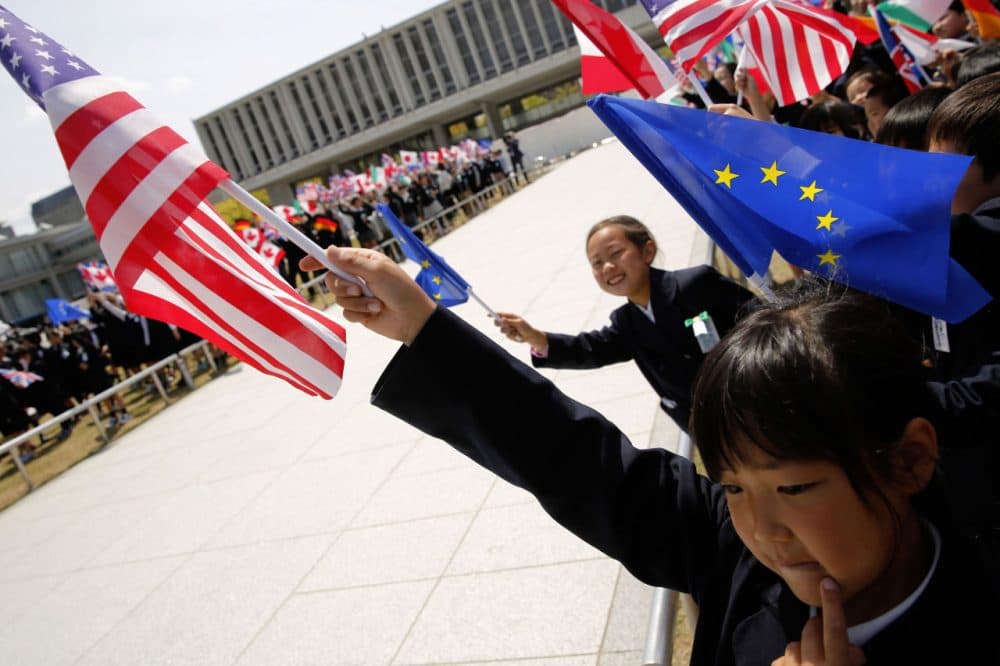Advertisement
Obama's Visit To Hiroshima Is 'About Memory, More Than It's About Apology'
Resume
The White House announced this week that President Obama will visit Hiroshima later this month during a trip to Japan, becoming the first sitting U.S. president to visit the city where the U.S. dropped the world's first atomic bomb.
The president will not apologize for using nuclear weapons in both Hiroshima and Nagasaki, the White House says, nor should the visit itself be seen as an apology. Here & Now's Meghna Chakrabarti talks to Richard Samuels, director of the Center for International Studies at the Massachusetts Institute of Technology and founding director of the MIT Japan Program, about the significance of Obama's visit, and Japan's evolving attitudes toward militarization.
Guest
- Richard Samuels, political science professor, director of the Center for International Studies at MIT, and founding director of the MIT Japan Program.
This segment aired on May 13, 2016.